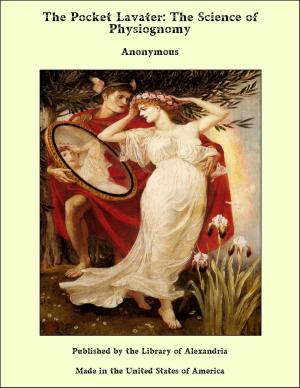Ireland under the Stuarts and during the Interregnum: 1603-1690 (Complete)
Nonfiction, Religion & Spirituality, New Age, History, Fiction & Literature| Author: | Richard Bagwell | ISBN: | 9781465617170 |
| Publisher: | Library of Alexandria | Publication: | March 8, 2015 |
| Imprint: | Language: | English |
| Author: | Richard Bagwell |
| ISBN: | 9781465617170 |
| Publisher: | Library of Alexandria |
| Publication: | March 8, 2015 |
| Imprint: | |
| Language: | English |
The change from Elizabeth to James I. marks the transition from an heroic age to one very much the reverse. The new court was scandalous, and after the younger Cecil’s death public affairs were administered by a smaller race of men, not one of whom gained the love or admiration of his countrymen. Raleigh, the typical Elizabethan, spent thirteen years in the Tower, and died on the scaffold. But outside the sphere of politics the first Stuart reign must be regarded with interest, for it saw the production of Shakespeare’s finest plays and of Bacon’s chief works. Meanwhile England had peace, and silently prepared for the great struggle. Eliot and Pym, Wentworth and Cromwell, were all young men, and Milton was born some three years before Prospero drowned his book. The great Queen died at Richmond very early on March 24. By nine o’clock Sir Robert Carey was spurring northwards with the news, and King James was proclaimed in London the same morning. It was not until the next day that Cecil found time to send Sir Henry Danvers to Ireland, but the news had preceded the official messenger by a full week, so that Mountjoy was quite prepared. Danvers landed at Dublin on April 5, and within an hour after the delivery of his letters King James was duly proclaimed. Oddly enough, Tyrone, who had reached Dublin the day before, was the only peer of Ireland present, and he signed the proclamation which was circulated in the country. Three days later he made submission on his knees to the new sovereign, ‘solemnly swearing upon a book to perform every part thereof, as much as lay in his power; and if he could not perform any part thereof he vowed to put his body into the King’s hands, to be disposed at his pleasure.’ The earl’s submission was ample in substance, and humble enough in form; but Sir William Godolphin, who had brought him to Dublin, warned the English Government that he would not remain a good subject unless he were treated reasonably.
The change from Elizabeth to James I. marks the transition from an heroic age to one very much the reverse. The new court was scandalous, and after the younger Cecil’s death public affairs were administered by a smaller race of men, not one of whom gained the love or admiration of his countrymen. Raleigh, the typical Elizabethan, spent thirteen years in the Tower, and died on the scaffold. But outside the sphere of politics the first Stuart reign must be regarded with interest, for it saw the production of Shakespeare’s finest plays and of Bacon’s chief works. Meanwhile England had peace, and silently prepared for the great struggle. Eliot and Pym, Wentworth and Cromwell, were all young men, and Milton was born some three years before Prospero drowned his book. The great Queen died at Richmond very early on March 24. By nine o’clock Sir Robert Carey was spurring northwards with the news, and King James was proclaimed in London the same morning. It was not until the next day that Cecil found time to send Sir Henry Danvers to Ireland, but the news had preceded the official messenger by a full week, so that Mountjoy was quite prepared. Danvers landed at Dublin on April 5, and within an hour after the delivery of his letters King James was duly proclaimed. Oddly enough, Tyrone, who had reached Dublin the day before, was the only peer of Ireland present, and he signed the proclamation which was circulated in the country. Three days later he made submission on his knees to the new sovereign, ‘solemnly swearing upon a book to perform every part thereof, as much as lay in his power; and if he could not perform any part thereof he vowed to put his body into the King’s hands, to be disposed at his pleasure.’ The earl’s submission was ample in substance, and humble enough in form; but Sir William Godolphin, who had brought him to Dublin, warned the English Government that he would not remain a good subject unless he were treated reasonably.















